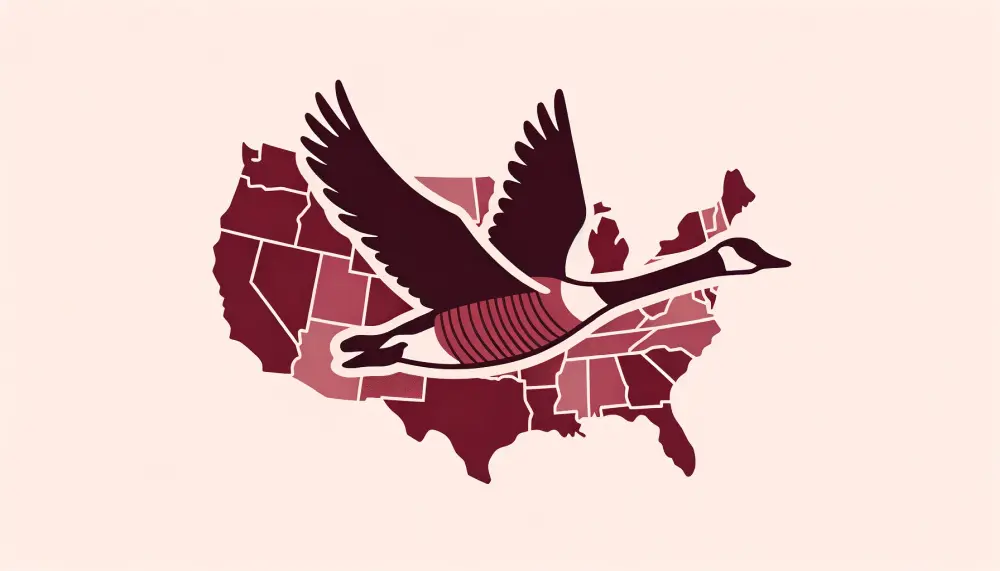Estimated reading time: 4 minutes
Table of contents
- Summary
- Understanding the 182-Day Rule
- The Substantial Presence Test and Tax Implications
- Required Documentation for Entry into the USA
- Visa Requirements and Extensions for Canadians
- Overstaying Risks and Consequences
- Tips for Maintaining Legal Stay Duration
- Conclusion and Resources for Further Information
- Read More
Summary
Navigating the complexities of international travel can be daunting, especially when understanding the legalities of stay durations.
Knowing how long Canadians can legally stay in the United States is crucial for planning a visit. This ensures a smooth travel experience and helps avoid potential legal issues.
This article aims to provide a comprehensive guide on the duration a Canadian citizen can legally stay in the United States. It will delve into the rules, regulations, and documentation required for such a visit.
Whether you’re a tourist, a business traveller, or considering a more extended stay, this guide will equip you with the essential information you need.
Understanding the 182-Day Rule
The 182-day Rule, a cornerstone of US immigration policy, is crucial for Canadians visiting the USA. It allows for a stay of up to 182 days, or roughly six months, within a 12-month period.
This duration can be continuous or intermittent. However, the total number of days within the specified period should not exceed 182.
It’s important to note that the 182 days are calculated by considering the current year’s stay and portions of the stays from the previous two years.
Overstaying this limit can lead to serious consequences, including being barred from future entry into the US. This means you may not be able to visit the US for a certain period, which can disrupt your travel plans and business opportunities.
The Substantial Presence Test and Tax Implications
The Substantial Presence Test is a tool the IRS uses to help determine tax obligations for foreigners, including Canadians, in the US.
Spending a significant amount of time in the US could lead to you being considered a resident for tax purposes, as per the Substantial Presence Test. This could have implications for your tax obligations, making it crucial to keep track of your days spent in the US.
It’s crucial to keep track of the number of days spent in the US. This helps avoid any potential tax residency implications.
Understanding this test can help Canadians plan their visits to the US more effectively.
Required Documentation for Entry into the USA
A valid Canadian passport is a must for entry into the US. It should be valid for at least six months beyond your expected departure date.
Canadians driving into the US must also have proper identification. They may be subject to customs checks.
Remember, US Customs and Border Protection (CBP) has the final say on admission and length of stay, even with valid documentation.
Visa Requirements and Extensions for Canadians
Canadians do not need a visa for tourist or business visits under six months. However, a visa may be required for longer stays or specific purposes.
The B-1 visa is for business visitors, while the B-2 visa is for tourists and those coming for medical treatment or social events.
Extensions of stay may be possible by filing a request with the US Citizenship and Immigration Services (USCIS) before the authorized stay expires. Before applying, ensure you have compliant photos ready — 5 min Passport Photos offers a quick and convenient solution for your application needs.
Overstaying Risks and Consequences
Overstaying can lead to serious consequences. This includes being barred from entering the US in the future.
Canadians who overstay may be subject to an expedited removal process. This process involves being immediately removed from the US without a hearing before an immigration judge. It can impact future travel plans and visa eligibility.
It’s crucial to understand the potential impact of overstaying and to plan your stay accordingly.
Tips for Maintaining Legal Stay Duration
Keeping a travel log of your entries and exits is not just a good practice; it’s essential for record-keeping and legal purposes. This will help you stay organized and in control of your stay duration.
Canadians should carry proof of ties to Canada to show the intent to return. This includes evidence of employment, such as a letter from your employer; residence, such as a lease agreement; and family, such as your marriage certificate or the birth certificates of your children.
Planning your travel well in advance and being prepared for border interviews and inspections can help you avoid overstaying.
Conclusion and Resources for Further Information
Understanding the rules and regulations for Canadians visiting the US is crucial. Overstaying can have serious consequences, including being barred from future entry.
For current information and any policy changes, consult official resources, including the US Customs and Border Protection (CBP) and US Citizenship and Immigration Services (USCIS) websites.
Lastly, consider consulting with immigration professionals or legal advisors for personalized advice. They can provide guidance based on your specific circumstances.





